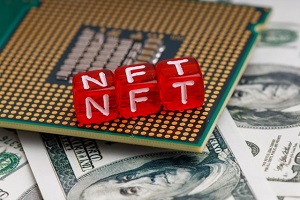On NFTs, Treasury Comes Out Swinging

The Treasury Department recently issued a Report on money laundering in the art markets. To no one’s surprise, Treasury found the art market to be an “attractive” one for money launderers, given the “the high-dollar values,” “ease of transportability,” “long-standing culture of privacy,” and “increasing use of art as an investment or financial asset.” When Congress mandated the report back in 2020, it probably did not anticipate the explosion of a new kind of “art” with new pathways for the illicit movement of money: NFTs, a non-fungible token signifying ownership over a digital asset. With the bored apes, celebrity endorsements, and Beeple, NFTs have exploded onto the art scene and thus into the world of art-based money laundering.
NFTs are traded online in, by design, secret transactions where basic identity verification is not required (the blockchain is supposed to do that). The art world is already a morass of secret private transactions, which often cross borders and involve anonymous participants. To open up that same market to an even more secretive set of transactions is asking for bad actors to take advantage. And Treasury knows it. In its Report, Treasury warned NFT markets that they may be considered “money service businesses” or MSBs, because they are “transferring virtual assets during the buying and selling of NFTs.” NFT dealers may not like it, but the MSB description fits—as “non-fungible tokens,” NFTs are nothing except digital expressions of ownership. They are not, at their core, art; they are money. And when that money transfers hands, it’s no different from any other financial transaction.
That Treasury is considering this designation should set off alarms for any money launderer out there. Under a MSB designation, NFT markets become subject to the same FinCEN disclosure requirements (and multi-million dollar enforcement actions) as banks and other financial institutions. NFT dealers would be responsible for collecting your customer information, conducting basic due diligence on the source of funds, and verifying that the money does not stem from any criminal acts. It’s a money launderer’s worst nightmare.
The MSB designation would also have a significant added benefit for law enforcement. NFT markets would then become subject to the Anti-Money Laundering Whistleblower Program. Ironically, this would happen before traditional art dealers, who are currently exempt from the Bank Secrecy Act (although there is proposed legislation to change that). These proposed legislative and regulatory changes would do a lot to stop art markets from being used by bad actors.
It remains to be seen what will come of the Treasury’s Report. But it’s an encouraging sign that the Department recognizes the problem in this emerging technology and is ready to use its tools to stop bad actors from appropriating the space.
If you have information about money laundering and other forms of corruption, please contact us.
Read more:
Tagged in: Financial and Investment Fraud, Money Laundering,